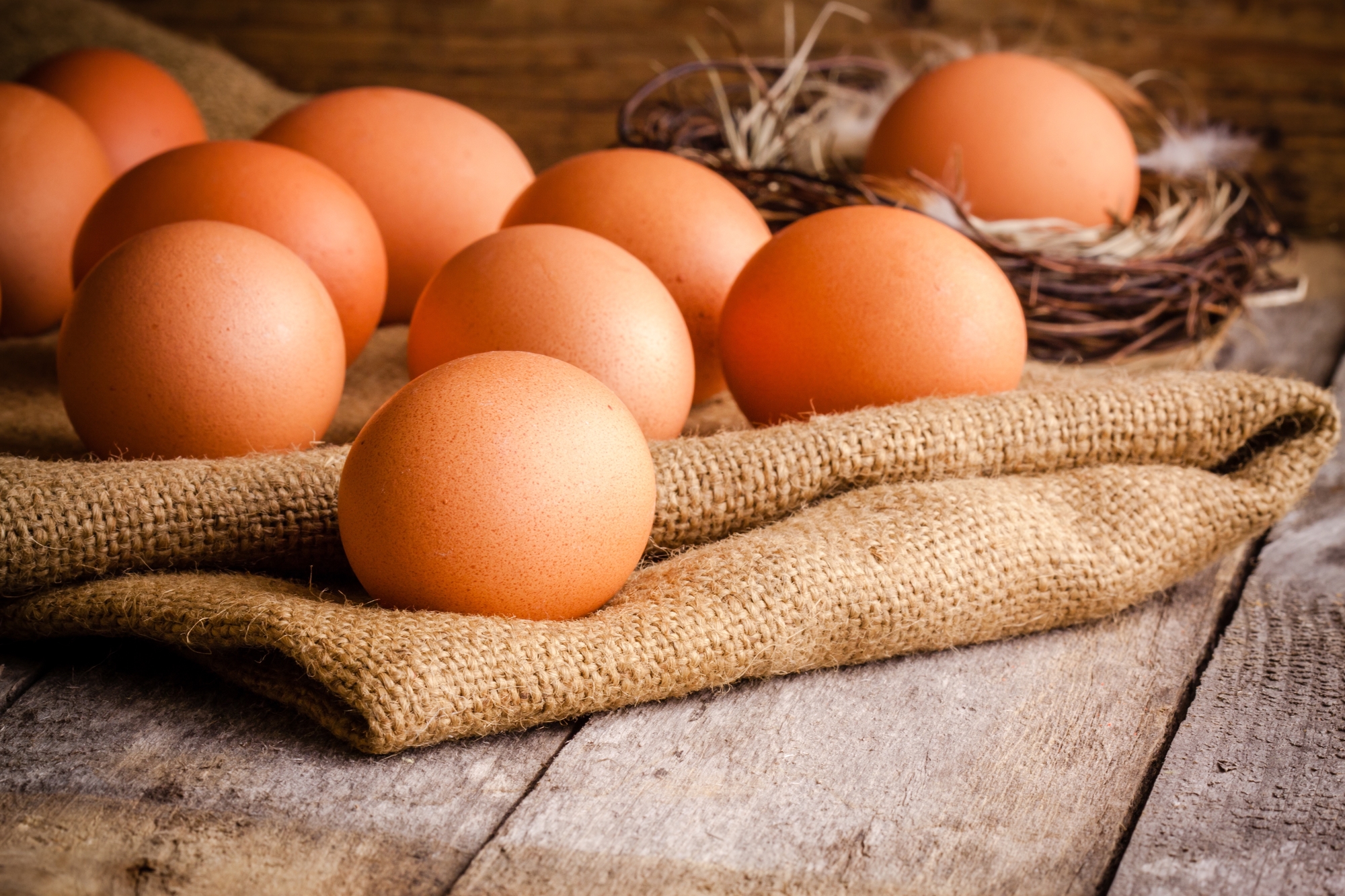
7 Ways to Preserve Fresh Eggs
Hens normally lay most of their eggs during the spring and summer when there is more natural daylight. They slow down or stop laying eggs in the darker winter months. In the 1800s, people needed to preserve eggs that were laid in the spring so they would last through the winter.
Today, poultry can be raised under artificial light and we have refrigeration, so we don’t have to worry about egg shortages. But if you raise your own chickens, you may want to try to preserve some of your eggs.
RELATED POST: Preserve Eggs With Slaked Lime or Water Glass
INFORMATION BELOW FROM 1800s COOKBOOKS:
If eggs are to be preserved, they should not be washed unless their condition compels it, as washing removes the natural covering of the pores. They should be stored in a clean, cool place, and packed as soon as possible.
Eggs should not be packed for winter use later than the middle of May or earlier than the first of April. Each method for the preserving of eggs is based on the theory that decay is hindered when the shell is covered with some substance that renders it air-tight and prevents evaporation or the entrance of bacteria and mold.
It will be well to note, however, that eggs preserved for any length of time deteriorate to some extent and cannot be expected to be equally as good as fresh eggs.
BOILING
If you put eggs into boiling water for one minute, they will keep fresh for a month.
STORE ON SHELVES
Eggs may be kept on shelves with small holes to receive one in each, and be turned every other day.
SAWDUST
Eggs may also be preserved for cooking by packing them in sawdust, in an earthen vessel, and covering the top with melted mutton suet or fat.
DRY SALT
Eggs should always be packed with the small end down, because the yolk will not settle toward the small end so readily as toward the large end or the side. Of these various ways of preserving eggs in the home, probably the oldest method is that of packing the eggs in salt. Put into a butter firkin* a thick layer of coarse dry salt, then a layer of eggs, another layer of salt, then eggs, and so on until the firkin is full. Cover and keep in a dry place. These eggs will keep put up in this way almost any length of time. You can also pack eggs in oats or bran. This method is fairly effective, but the eggs preserved by it do not keep so long as eggs preserved by other methods, nor is their quality so good.
* firkin – a small wooden cask
GREASE EGGS
In the spring when eggs are plenty and cheap, it is very well to put up several hundred to use in the winter, when it is very difficult to get them, even in the country.
They are frequently preserved for two or three months by greasing them all over when quite fresh, with melted mutton suet, butter, lard, or paraffin. Then wedge them close together (the small end downwards, with the eggs not touching each other), in a box of bran or sawdust, layer above layer. The box must be closely covered.
Eggs may also be kept a long time by covering them with beeswax dissolved in warm olive or cotton-seed oil. Use one-third wax to two-thirds oil. By filling up the pores of the shell, the evaporation of the liquid part of the egg is prevented.
Put them in a dry closet and keep them covered over. If they are put in the cellar, they are liable to mold, which spoils them entirely. Do not put in any cracked eggs, or they will injure the rest. In this way, they have been known to keep a year, and were nearly as good for puddings, or batter cakes, as fresh eggs. They do not do to boil, or make pound or sponge cake, as they lose part of their lightening property.
TO KEEP EGGS WITH GLUE
Break some glue into pieces, and boil it in sufficient water to make a thin solution. While warm, dip a brush into it, and go carefully over every egg. They must all be quite fresh. When the eggs are thoroughly glazed with the glue, spread them out to dry. When quite dry, pack them in kegs or boxes, with dry wood-ashes or saw-dust, putting a thick layer of the ashes or saw-dust at the bottom and top of the keg. This is an excellent way of keeping eggs for sea-voyages, and is well worth the trouble. Before using them, soak them in warm water to get off the coating of glue.
STORING EGG WHITES
Where large quantities of the yolks are used, the whites may be evaporated and kept in glass bottles or jars. Spread them out on a stoneware or granite plate and allow them to evaporate at the mouth of a cool oven.
When the mixture is perfectly dry, put it away. This powder is capable of taking up the same amount of water that has been evaporated from it, and may then be used the same as fresh whites.
Image from Deposit Photos
=====================================================
RELATED POST: Preserve Eggs With Slaked Lime or Water Glass
=================================================
Have You Ever Preserved Eggs? Please Leave a Comment Below.
=================================================
 VINTAGE COOKING from the 1800s ~ EGGS
VINTAGE COOKING from the 1800s ~ EGGS
by Angela A Johnson
How did people cook and store eggs without electricity?
This book tells how to determine freshness, how to cook, and how to preserve eggs.
Recipes include Fried, Poached, Baked, and Boiled Eggs, Omelets, Soufflés, Egg Balls, Custards, Puddings, Dressing, Sauces, Creams, Drinks, and more…..
Available from these online Retailers:
Amazon, Kobo, Apple, Barnes&Noble, Scribd, 24 Symbols, Playster, Angues & Robertson, Mondadori Store, and more
Also available as Regular Print and Large Print
on Amazon.
=================================================
Preserving Food without Freezing or Canning
Traditional Techniques Using Salt, Oil, Sugar, Alcohol, Vinegar, Drying, Cold Storage, and Lactic Fermentation
Typical books about preserving garden produce nearly always assume that modern “kitchen gardeners” will boil or freeze their vegetables and fruits.
Yet here is a book that goes back to the future—celebrating traditional but little-known French techniques for storing and preserving edibles in ways that maximize flavor and nutrition.
=====================================================



4 thoughts on “7 Ways to Preserve Fresh Eggs”
WOW !! What a neat article ! Love the info !!
Thank you. I’m having a good time reading through old cookbooks and finding interesting topics to write about.
I put food grade mineral oil on our eggs and stuck them in our extra fridge. Our hens laid all last winter and are laying again this winter but not every hen every day. We have kept a red heat lamp on them this year only because we live in one of the coldest parts of the country, not to keep them laying eggs. We only have three hens now so they need help to keep warm. We had more last year so only used the heat lamp on unusually cold nights. It was interesting to read about the different ways to store them. Glue sure sounds messy!
I like learning how people kept food from spoiling in the days before electricity and refrigeration.